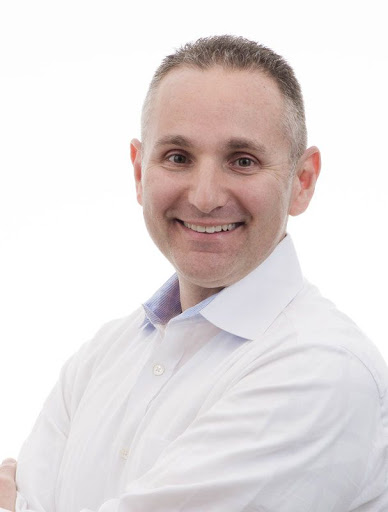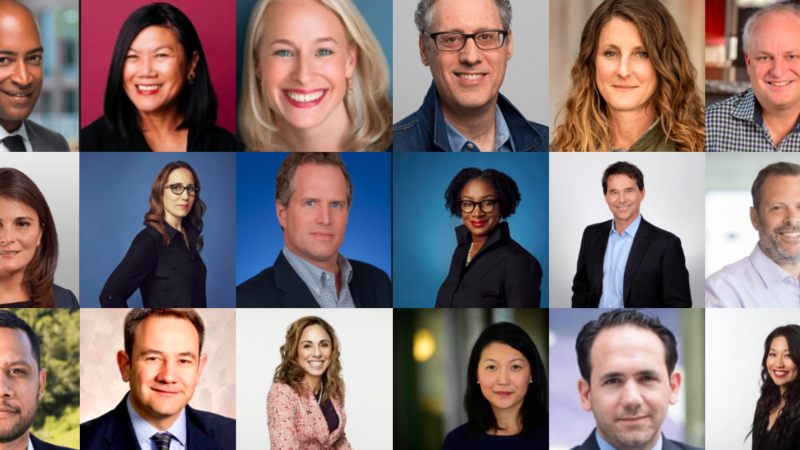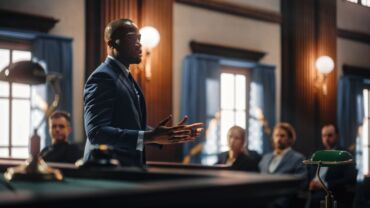We continue our regular feature, Upfront & Personal, a column created by Rose Ors that brings “the person behind the title” to the forefront in interviews with some of the most influential members of the legal community
Seth Weissman, Chief Legal Officer at payment platform Marqeta, spoke with Rose Ors, the CEO and Founder of ClientSmart, about the importance of coaching, leading people toward growth, and why high-EQ teams are usually more diverse.
Rose Ors: What are you most proud of about the way you lead your life?
Seth Weissman: I am most proud of the efforts I have made to be a better version of myself, both personally and professionally. On the personal side, I come from a household of violence and significant dysfunction. I knew I did not want to repeat the family pattern, but I also recognized I did not have the tools to work through what I had experienced and seen.
That led me to begin therapy and counseling in my 20s — something I continue to this day. While I still have miles to go to understand, forgive, and move forward, I am a much better and happier person today than when I began therapy.
Rose Ors: And professionally?
Seth Weissman: Mid-career, I realized I had a lot of room for improvement professionally. I, again, recognized I did not have all the tools I needed to make the necessary changes, so I began working with an executive coach. And as was the case in my personal journey, I benefited from a trained professional’s perspective and expertise.
Being coached was such a great experience for me, I became a certified coach myself because I wanted to have that impact on others. So, I became a part-time coach for about two years while I figured out what I wanted to do next.
Rose Ors: How do therapy and coaching compare for you?
Seth Weissman: Therapy helps me look at my past to understand what I experienced and how it is showing up in my personal narrative and relationships. Coaching is much more about the professional you are now, how you relate to others, and how they relate to you.
Rose Ors: What prompted you to leave coaching and return to law?
Seth Weissman: As much as I loved being a coach, there is something about being part of a team, having an impact on the team, and maybe an impact on a broader part of the company. I feel like I can positively impact dozens of people’s lives.
Rose Ors: What do you find most personally rewarding about your work?
Seth Weissman: I am a leader who wants to guide exceptional people toward massive growth. I get deep satisfaction from seeing my team grow and develop.
My goal is to come to work every day and see light bulbs go on, see people think about where they can go and what they can do. I want them to find joy and experience happiness in their work. I am most proud of the fact that a number of lawyers I have led have become general counsel themselves.

Also, I am very passionate about being part of a diverse team. My experience running three HR departments and working as an employment lawyer has shaped the hiring approach I have used to build such a group. I have found that when I look to recruit individuals with high emotional intelligence (EQ) for my teams, the composition of the team is always diverse.
Rose Ors: Why do you think that has been your experience?
Seth Weissman: There are four components to EQ. Most lawyers score well on the two attributes that comprise personal competency: self-management and self-awareness. What distinguishes the high-EQ candidates I seek is their social competency, which entails social awareness and relationship management.
They have empathy, can pick up on emotional clues and know how to develop and maintain good relationships. I think if you are a part of a group that has been marginalized, you develop such traits because you have had to work on finding where you fit and how others fit with you. Put simply, I believe that if you recruit for a strong EQ, especially in the social competencies, that you also recruit for diversity.
Rose Ors: What person, living or dead, would you like to have over for dinner?
Seth Weissman: It would be a close call with Nelson Mandela beating out Winston Churchill by a nose. I considered Churchill because here is this imperfect human being who was the one person to stand firm in protecting the entire world against fascism and Nazism. What a lonely place to be, the last line of defense against such evil. What courage, what fortitude.
Mandela was a man who had been wrongly incarcerated for 27 years. I chose him over Churchill because of his ability to forgive those who had wronged him. Imagine what an extraordinarily developed, caring, loving human being Mandela was to not seek retribution against his captors.
Rose Ors: What questions would you ask Mandela?
Seth Weissman: The first question would be, “What gave you the strength to endure?” and then, “How were you able to forgive?”
Forgiveness is a concept I have struggled to understand in my own life. I would love to forgive at a deeper level and would want to learn from Mandela how he forgave decades of atrocity.
Rose Ors: Now the final question: Besides legal acumen, how can outside law firms add value?
Seth Weissman: To me, great lawyering is as much about asking the right questions as it is about giving the right answers. A great lawyer asks, “What are you trying to do and why are you trying to do it?” and then helps the client think it through. Lawyers often feel compelled to provide what they believe is the single best answer, often the most conservative one, and in effect are making the decision for the client.
I think it is far more helpful to serve as a catalyst in exploring different options. Great lawyers say “Yes, and…” They help the client determine what outcome they are looking for and then say “Yes” with an eye towards weighing the risk and reward.
This interview has been edited and condensed by Rose Ors.







